Michele Feist is rebuilding her life and community. It’s been almost two years since Feist lost her home in the wildfire of 2021 that burned nearly all of Lytton, B.C. to the ground and made international headlines. After months of not knowing when, where or if she would be able to start again, Feist decided to resettle 300 kilometres away in Williams Lake.
Feist is one of many survivors who speak about being displaced after fires or floods in The Tyee’s series Bracing for Disasters. We’ve woven details of their stories into our reports on how individuals, communities and the province can be better prepared in an era of rising climate-related catastrophes.
And one by one over the past weeks, we’ve also published their first-person accounts, now gathered here in one article.
When photographer Philip McLachlan and I arrived outside Feist’s house on a cold January morning, she led us through her front gate and welcomed us inside for tea. Her dog Finn eagerly circled, wagging his tail. As we walked through Feist’s home, she revealed mementos from the village that had been recovered from the ashes. There was a small brass figurine high on her kitchen shelf and a porcelain statue with a whisper of heat exposure.
Too often, the life-altering arc of enduring disaster survival gets lost in news articles or government reports. Survivors’ perspectives might be confined to a few words elicited in a moment of shock or trauma. They become figurines placed in stories. Feist recalls that many journalists and politicians filtered through Lytton immediately after the fire and again at the one year anniversary. The visitors seemed to be in search of concise, symbolic quotes and pictures. “When you are a symbol you’re not actually a person,” Feist said. “You’re something to be manoeuvred and talked about,” and the humanity of the experience is lost, she said.
That’s why we thought it was important for Feist and other survivors to speak directly to readers at length in their own words. Gathered here are personal, moving and insightful accounts, shared with you the reader as if you are sitting in the survivors’ living rooms drinking tea.
‘Trauma-informed’ interviewing
The Tyee partnered with researchers and journalists at the Climate Disaster Project to create these narratives. The Climate Disaster Project is an initiative based at the University of Victoria that works with communities affected by climate change to help them tell their stories. Our team used a trauma-informed interviewing process that was developed in consultation with climate disaster survivors and trauma experts.
The process starts with a journalist co-creating questions with a disaster survivor, recording an interview based on those questions and then writing a story directly from their conversations. Throughout the process, the climate disaster survivor has the opportunity to review and give approval of the final story.
Survivors often experience profound loss and lack of control, said Sean Holman, director of the Climate Disaster Project and the Wayne Crookes, professor of environmental and climate journalism. When journalists spring questions on disaster survivors or don’t provide a clear picture of how their story will be presented in the resulting article, it can create a second wound. “What if we treated it as a collaboration instead of a confrontation?” Holman explained.
In the media, survivors often “become representatives of that disaster, rather than knowledge bearers of how we can make an increasingly disaster-affected future not just bearable, but more equitable and resilient,” Holman said. “What our process does is help restore that lack of control by working with the survivor to create the questions for their interview,” as well as involving them in the editing process and what shape their final as-told-to story takes.
So far, Holman and his team have created over 120 stories in collaboration with disaster survivors from around the world. Most of the profiles shared for this series were conducted by journalism students and recent graduates from First Nations University, the University of Victoria, Mount Royal University and Toronto Metropolitan University.
Supported by a generous grant from the Lieutenant Governor's BC Journalism Fellowship, photojournalists Philip McLachlan, Jen Osborne and I travelled around the province to meet the storytellers and take portraits. Those we visited welcomed us into their homes, generously shared their stories, their hopes for the future, and ways to better weather the inevitable future storms. Here you can read each of their unique stories, in their own words.
“Maybe it's going to get more uncomfortable before it gets more comfortable,” said Feist in her as-told-to. But, “I think, ultimately, that we incline towards life.”
The stories
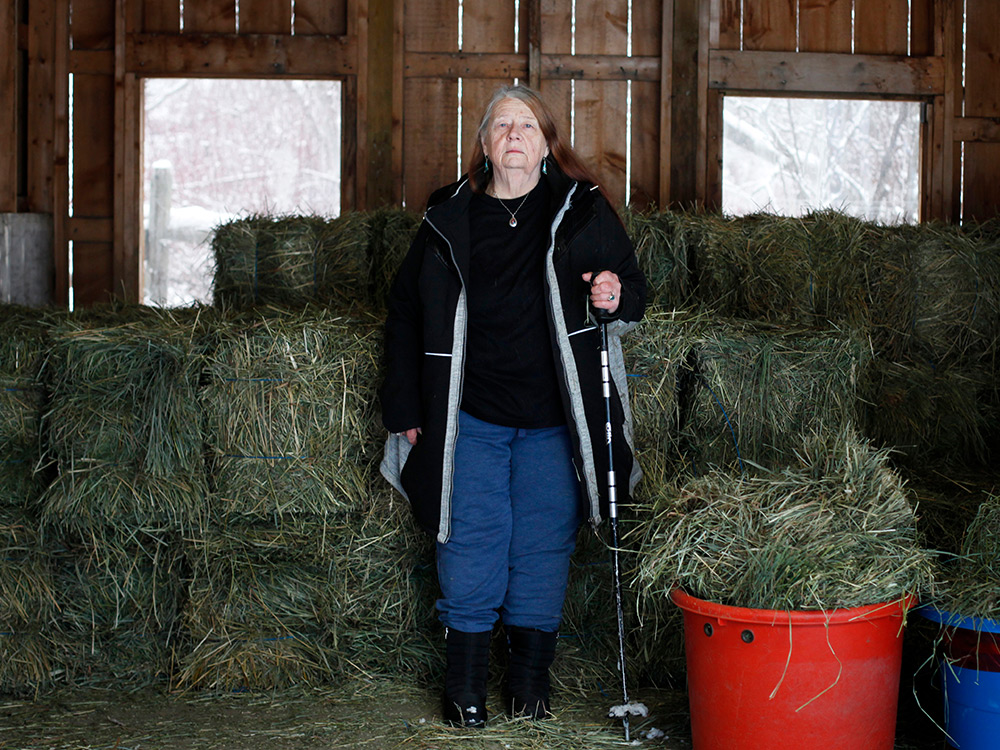
Dian, her brother Danie and their pets waited for two days in the second level of their flooded home before they were rescued by boat. Dian lived in a trailer for over a year while rebuilding their damaged home.
Dian’s story“It's like you could feel moss growing on your teeth.”
Dian Brooks
near Princeton
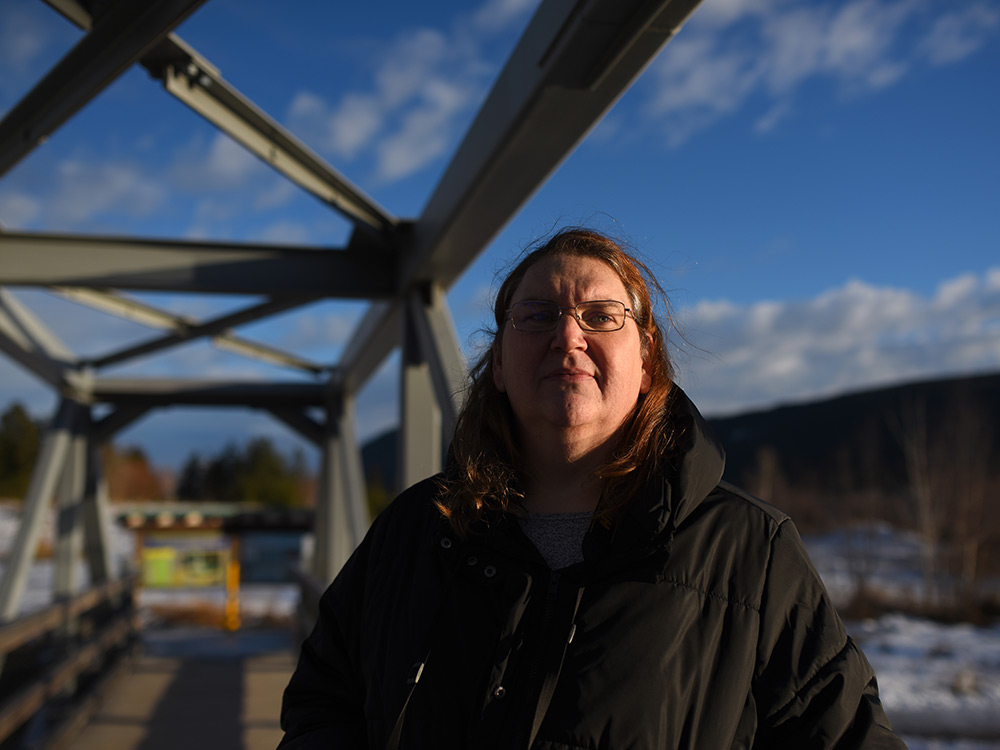
Billie evacuated before an official order was given as her child with asthma struggled to breath through the thickening wildfire smoke. If you evacuate early, there is no government support set up.
Billie’s story“You're leaving your life behind.”
Billie Sheridan
Williams Lake
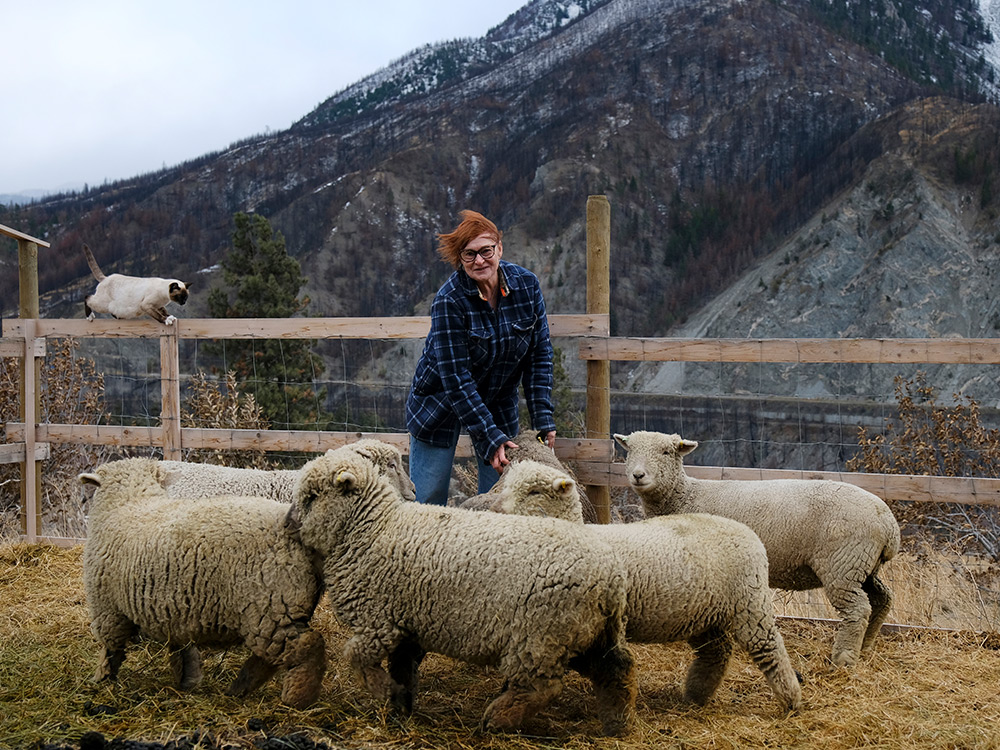
Tricia had to find her own way to rescue the animals from her hobby farm during the Lytton wildfire in 2021. Since the fire, she and her husband completely rebuilt their home using firesmart methods.
Tricia’s story“There's no looking back because anything from your past is completely wiped out.”
Tricia Thorpe
Lytton
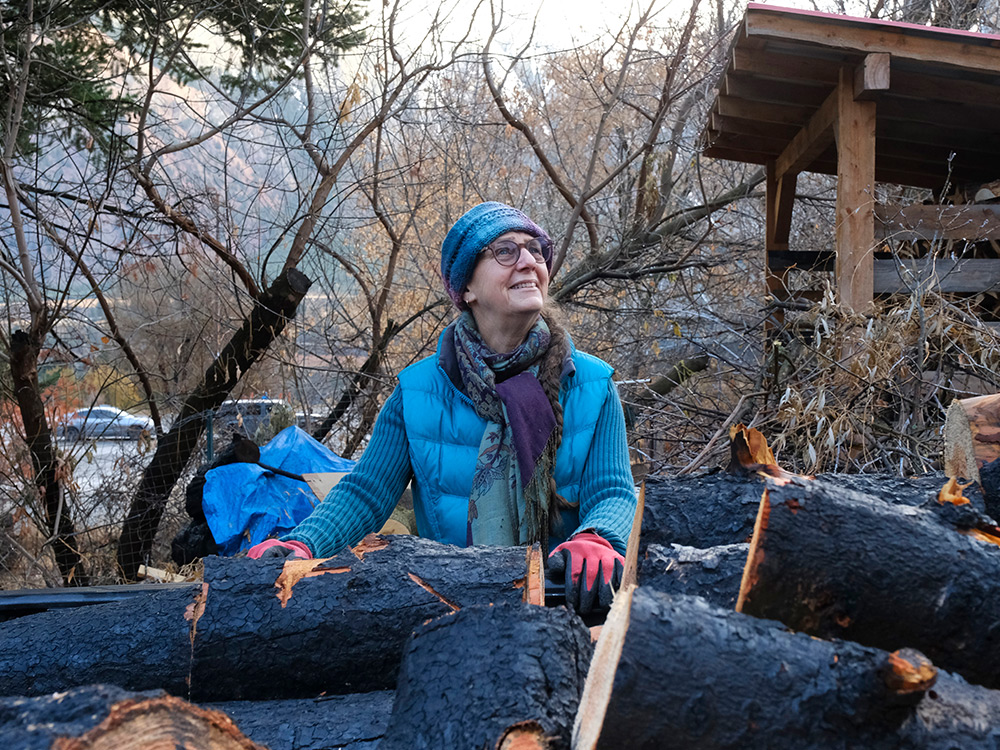
Maggie provided refuge for her neighbours and family after the Lytton fire displaced the community. So many disaster survivors turned to friends and family for support. Maggie also lost a family property and has been back to cut and collect the burnt timber to heat her new home in Lillooet.
Maggie’s story“It’s like somebody took a chalkboard eraser and erased my life.”
Maggie Lord
Lytton
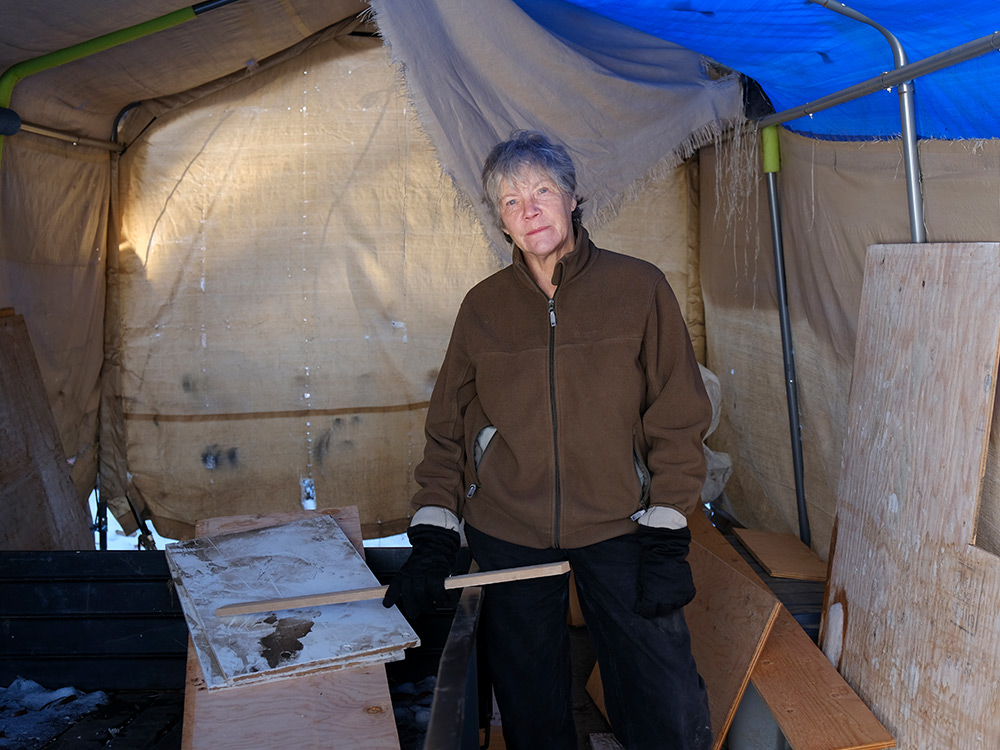
Donna has been working tirelessly to rebuild her home in Merritt after the 2021 floods. The pensioner had to take out a loan to get her rebuild started as she waited for government support.
Donna’s story“Everything else from my whole past was all gone.”
Donna Rae
Merritt
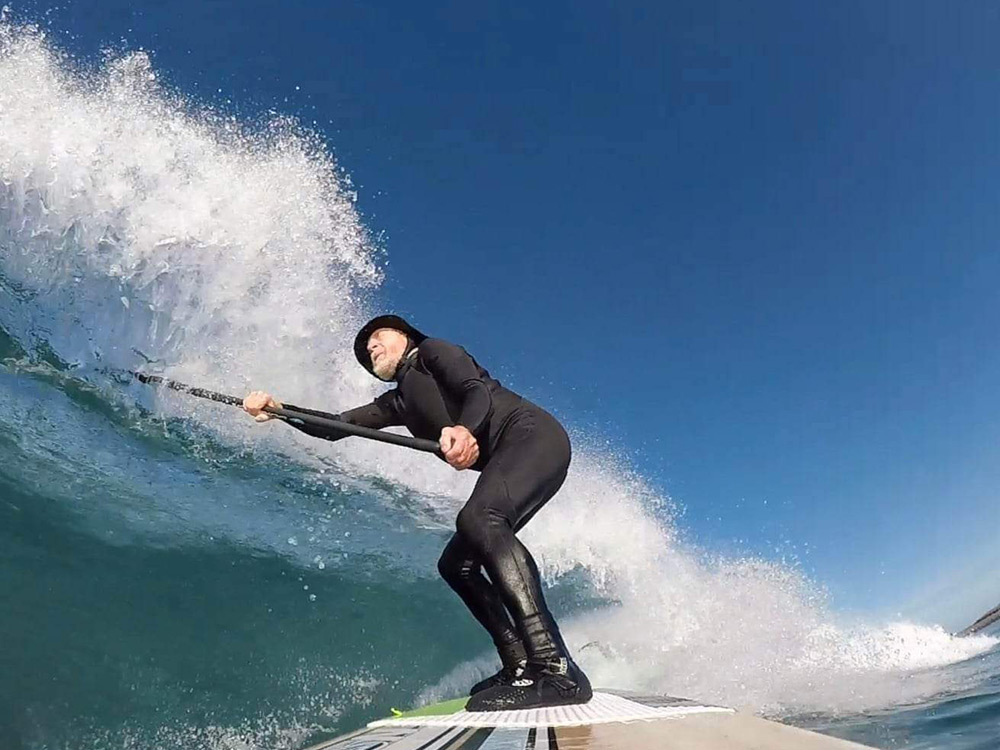
Ken didn’t immediately evacuate when a wildfire threatened Lytton in 2021. He drove around looking to make sure people without a car were able to get out safely. After the fire, he took some time to surf the waves in Mexico.
Ken’s story“We looked into the eyes of the beast.”
Ken Pite
Lytton
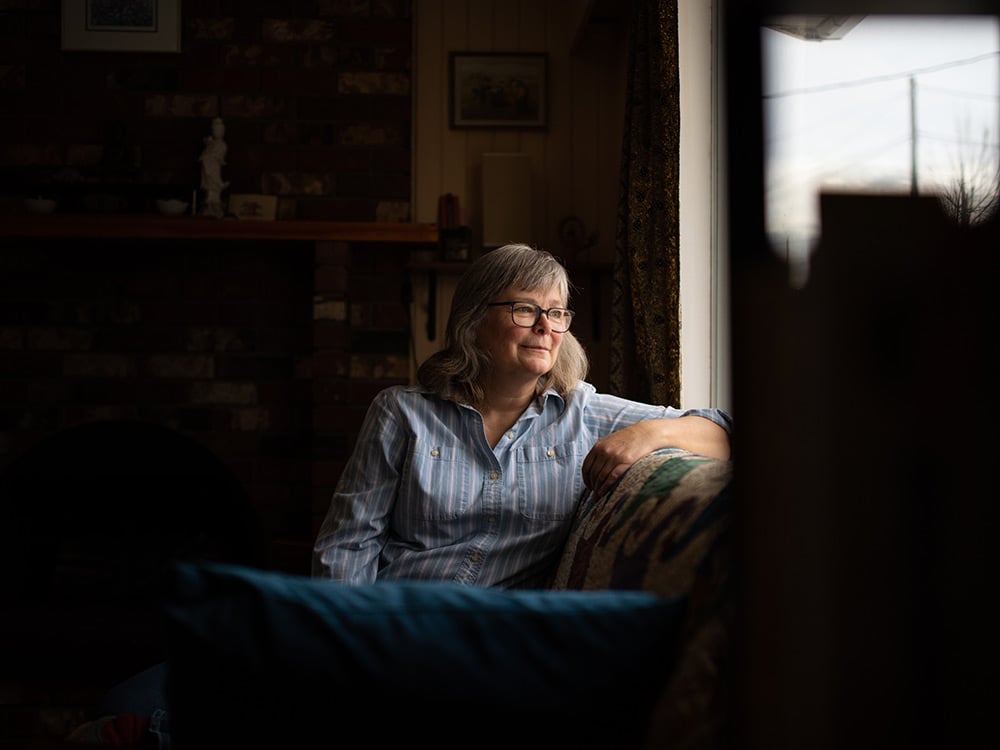
Michele, a retired nurse, decided to relocate to Williams Lake after the Lytton wildfire. The state of emergency for the village of Lytton lasted almost two years.
Michele’s story“I knew in the back of my head somewhere that Lytton was gone.”
Michele Feist
Lytton
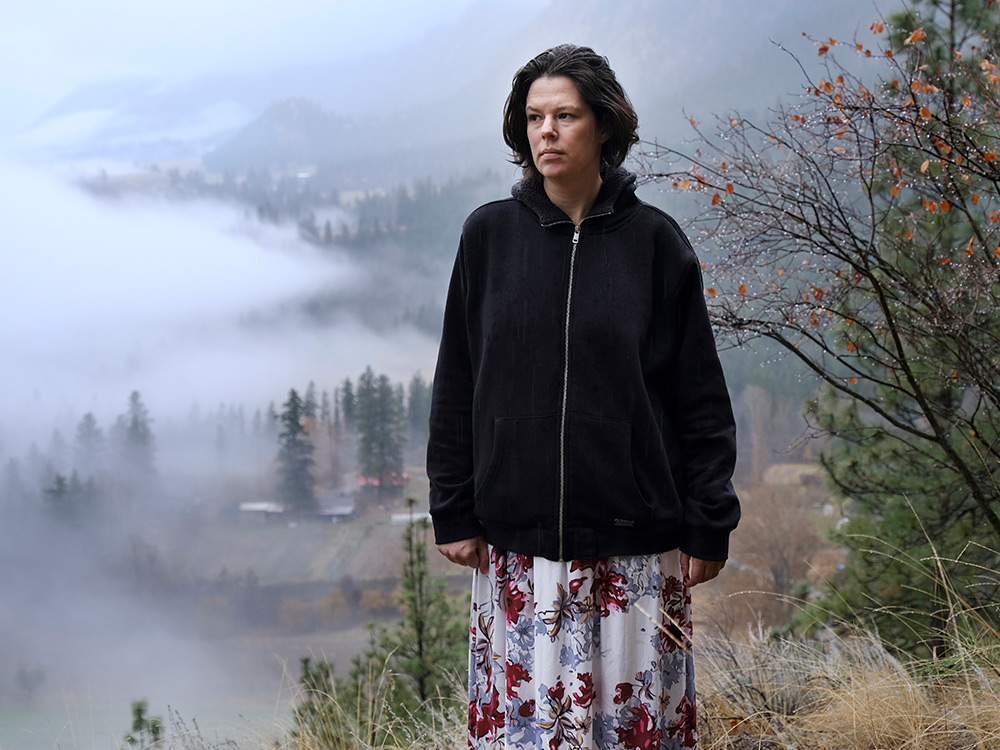
Micha grew up in Lytton and hopes to still raise her young daughter there too. She lost her apartment and childhood home in the 2021 fire and the two of them are staying with family as the village now shifts to rebuild.
Micha’s story“It looked like this animal, a fire beast, just arms of fire going forward.”
Micha Kingston
Lytton
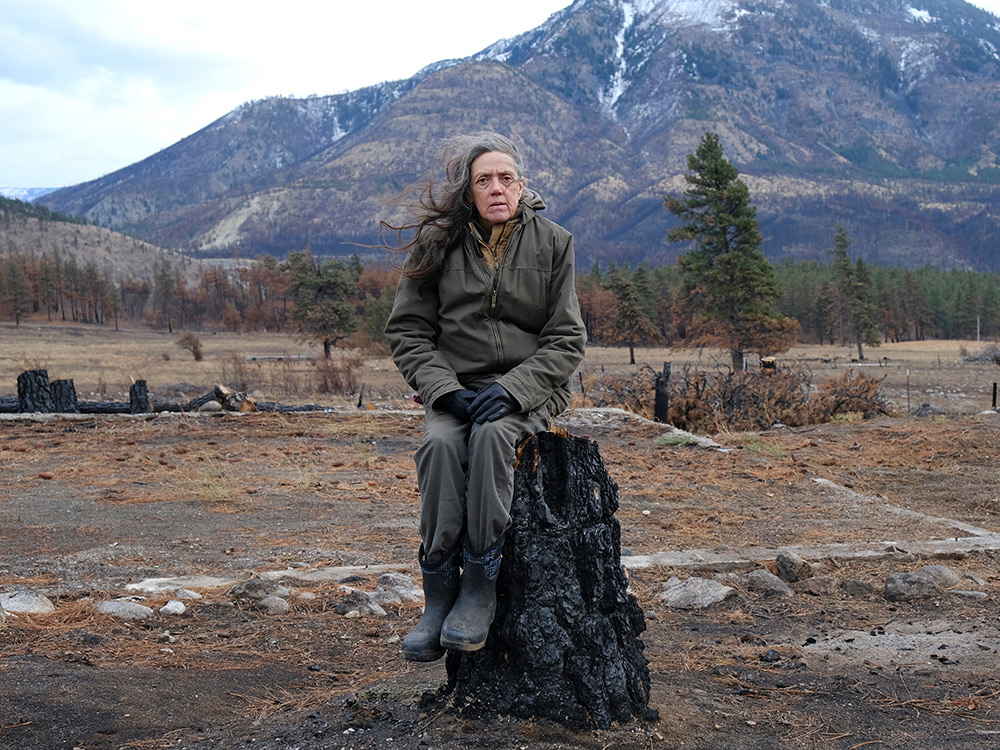
Patsy and her husband survived two summer wildfires in a row — the fires in Lytton in 2021 and 2022. The market gardener was able to save her garden from the second fire and has continued to provide fresh, local produce for her community.
Patsy’s story“I’m not afraid of the fire.”
Patsy Gessey
Lytton
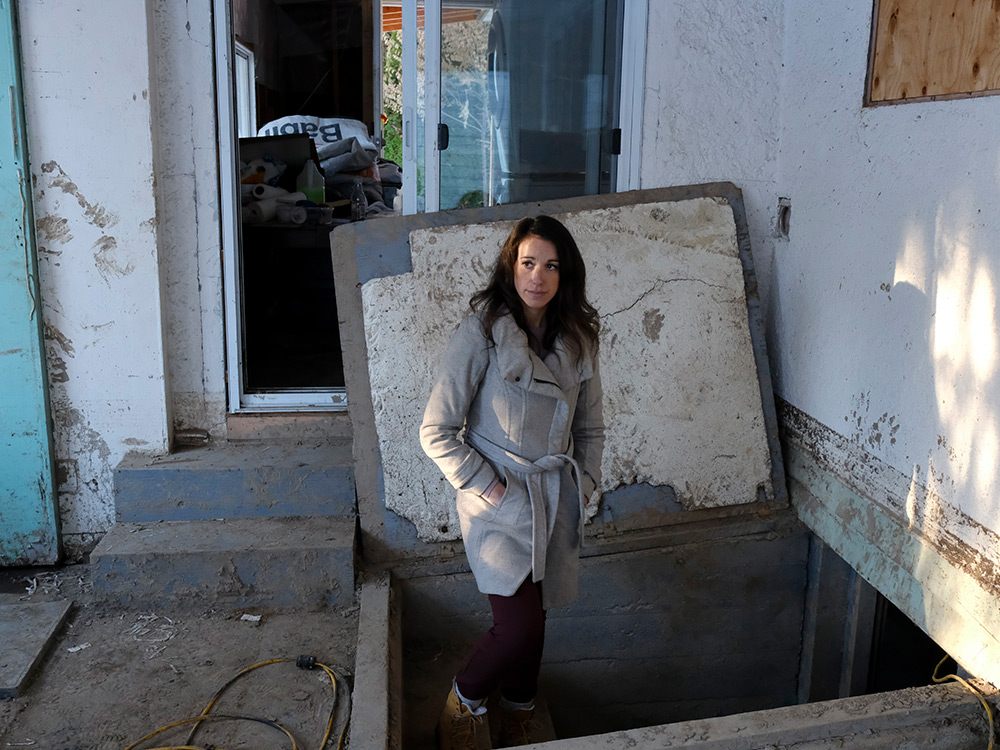
Rochelle was living in limbo as she tried to sell her flood damaged home in Merritt. The rebuild costs continued to increase as Rochelle discovered new building challenges.
Rochelle’s story“It sounded like driving through the deepest puddle you've ever driven through.”
Rochelle Rupert
Merritt
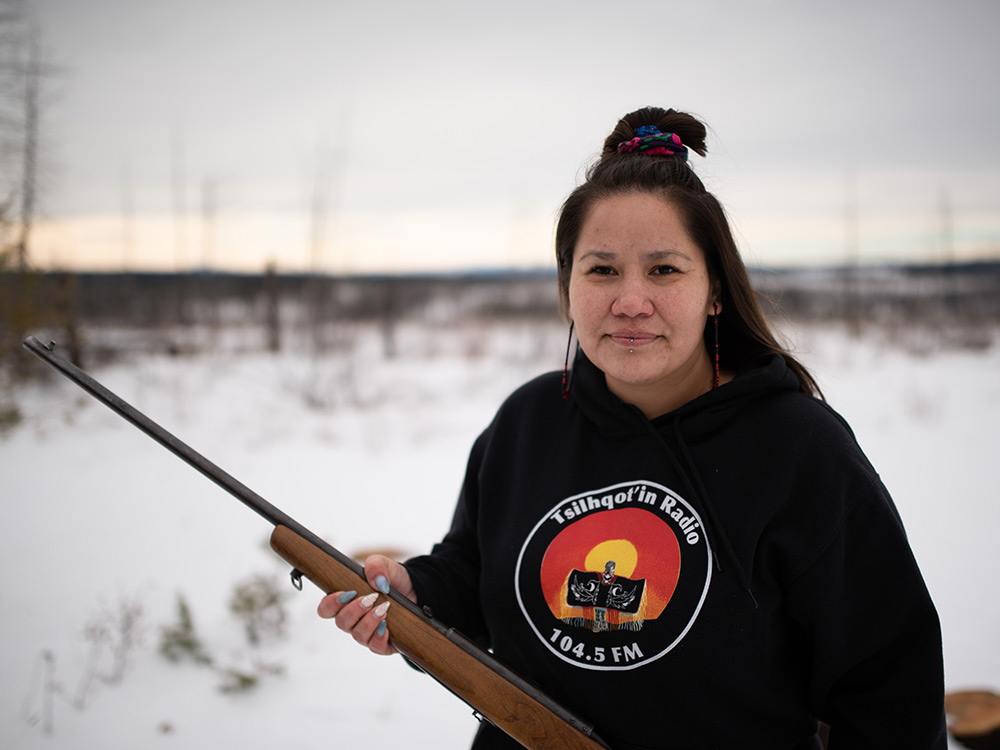
Racine, a member of the Tsilhqot'in Nation, grew up connected to the land around Williams Lake. Since the 2017 fires, the area has completely changed and is still recovering.
Racine’s story“We know that no matter what we have each other.”
Racine Jeff
Williams Lake
Read more: Rights + Justice, Environment



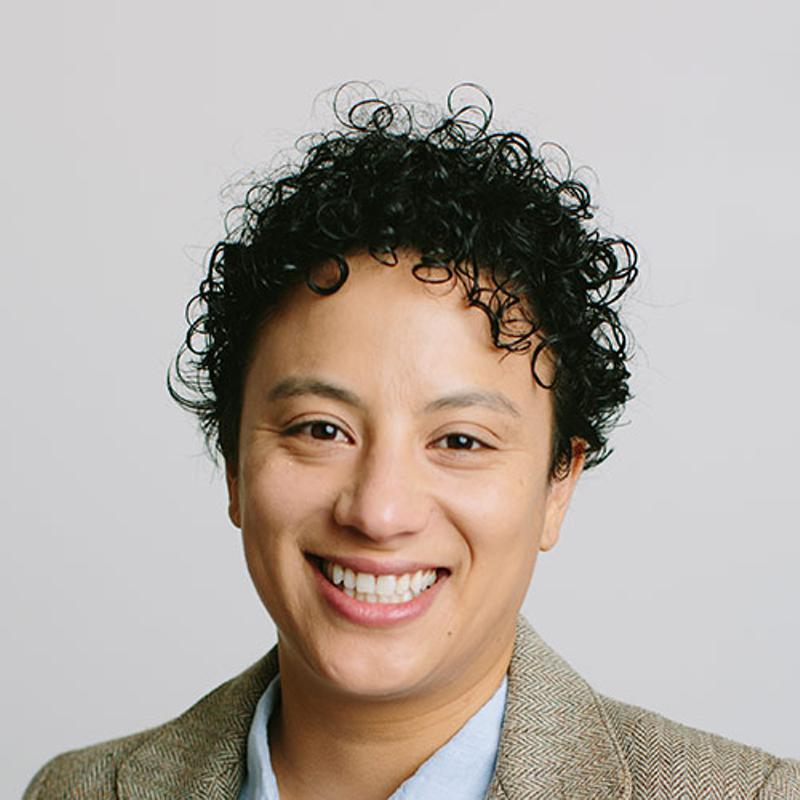

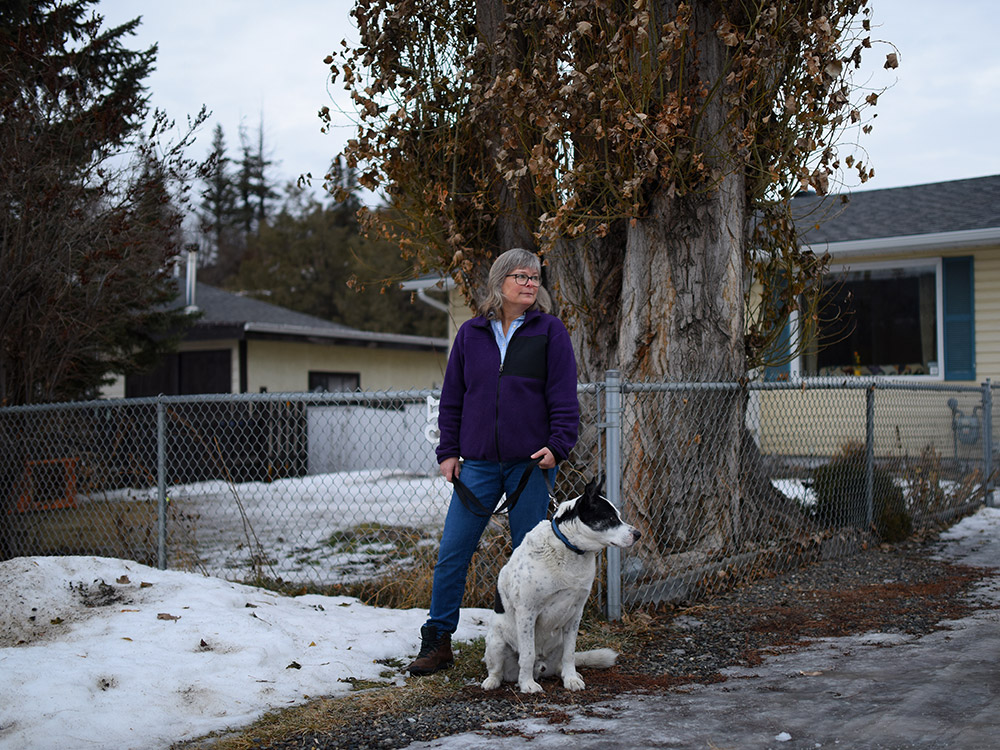







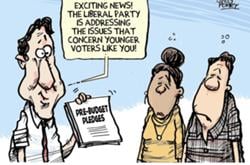
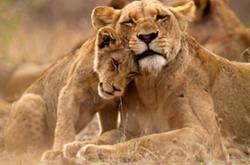



Tyee Commenting Guidelines
Comments that violate guidelines risk being deleted, and violations may result in a temporary or permanent user ban. Maintain the spirit of good conversation to stay in the discussion and be patient with moderators. Comments are reviewed regularly but not in real time.
Do:
Do not: